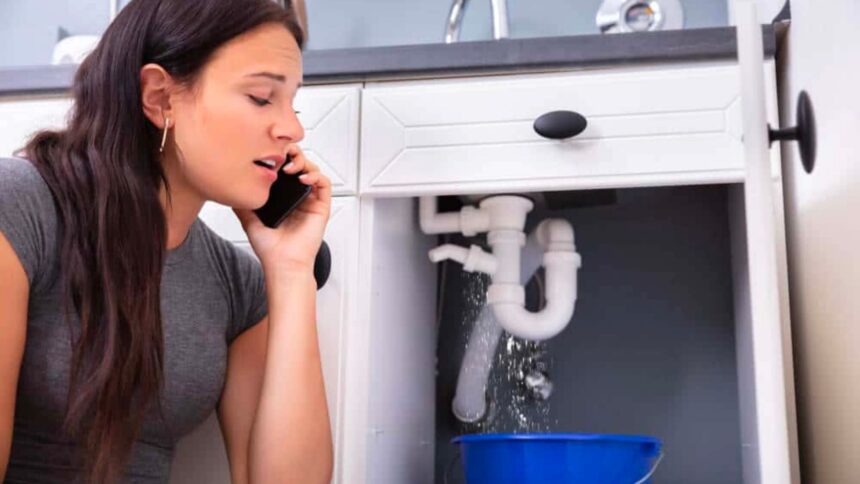Major leaks or burst pipes require your immediate attention. To ensure these issues don’t escalate to costly repairs, you should identify the leaks. The best approach is staying vigilant and taking proactive measures. This simple guide will examine how to prepare for unexpected plumbing emergencies and how to resolve them.
Burst Pipes
Uncommon causes
Apart from high water pressure, burst pipes can result from tree roots infiltrating underground pipes. As the roots seek water, they crack the pipes and burst them.
Certain materials corrode over time making them susceptible to bursting. When pressure exceeds the pump capacity, the shockwaves can lead to bursting.
If the plumbing is done poorly, any misalignment can weaken the joints, which further increases the risk of bursts.
Immediate actions
When faced with a major plumbing emergency like a burst pipe, quick action is crucial to prevent extensive damage. It’s essential to contact professional emergency plumbers immediately, as they are available 24/7 and understand the urgency of such situations. They have the expertise and tools to swiftly address the issue and minimize any potential harm to your home or property. Acting promptly can make a significant difference in containing the situation and preventing further complications.
Innovative preventative measures
Use smart leak detectors in areas prone to plumbing issues, especially in bathrooms and basements. These tools have a central monitoring system that sends alerts to your mobile device. Request this from your plumbing service provider.
A pipe insulation kit comes in handy if you live in areas with cold weather.
Clogged Drains
Unusual clogging culprits
If you have children in your household, small objects can find their way into the drainage system. Sometimes, the little ones throw small figurines in sinks and toilets causing significant blockages.
If you pour cooking oil and grease into your kitchen sink, it can solidify and trap debris. These stubborn clogs tend to accumulate in hidden pipes causing a major blockage.
Effective home remedies
Use non-corrosive enzyme-based cleansers to break down food particles and stubborn grease. Pour the recommended amount, let it sit for a few hours, and flush with warm water. Alternatively, you can create a fizzy reaction by mixing baking soda and vinegar (equal parts). Pour them down the drain and add some boiling water.
Leaking Faucets
You must learn to differentiate between common and rare leaks:
Cartridge faucets
A common leak is water dripping around the base of the facet. To repair the problem, you should replace the seals or the cartridge itself. However, if you spot some cracks in the faucet body, that’s a rare leak. An unusual wear pattern could be a serious plumbing issue.
Disc faucets
Leaks on disc faucets around the handle or the sprout are common in households. In such a case, you should clean or replace the disc. The main red flags of a rare leak on disc faucets are unusual wear patterns or cracks – they require more complex repairs.
Step-by-step guide to temporary fixes:
- You’ll need an adjustable wrench, plumber’s tape, and a towel.
- Turn off the water (main valve).
- Clean the debris around the areas where the leaks occur.
- Apply the tape around the threads – in a clockwise direction.
- Secure the connection back into place.
- Turn on the water.
- If the leak is not resolved, it’s time for replacement.
Overflowing Toilets
Your toilet may overflow when you flush inappropriate items. Another possibility is a problem with the sewer pipe. Even though you might be inclined to tackle the issue yourself, you need a professional to solve it. A specialist will examine the root cause of the problem and ensure the plumbing system is installed correctly.
Sewer Backups
Overlooked warning signs
Do you hear some gurgling sounds or an offensive odor emanating when you flush your toilet? Well, that could be a major plumbing problem.
Immediate actions
Since continued water usage could exacerbate the problem, you should take immediate action. Avoid water use. Contact a certified emergency plumber immediately.
Conclusion
Are you dealing with plumbing emergencies? Before you investigate for leaks, you ought to turn off your water supply – this is the standard procedure. Other than that, you should invest in leak detection devices and utilize temporary solutions to fix the leaks. Remember to establish a relationship with a trusted local plumber who offers 24/7 availability for emergencies.


